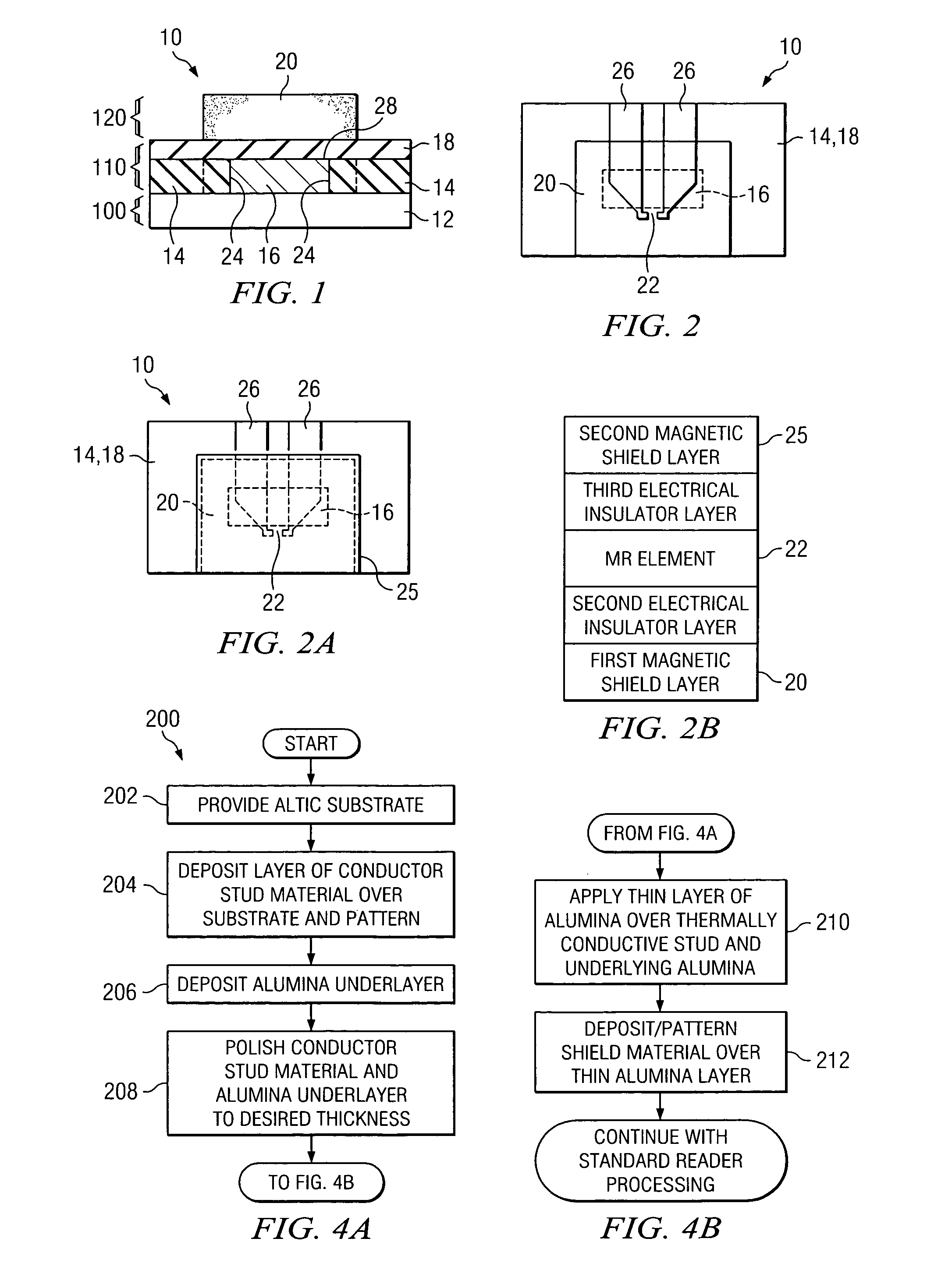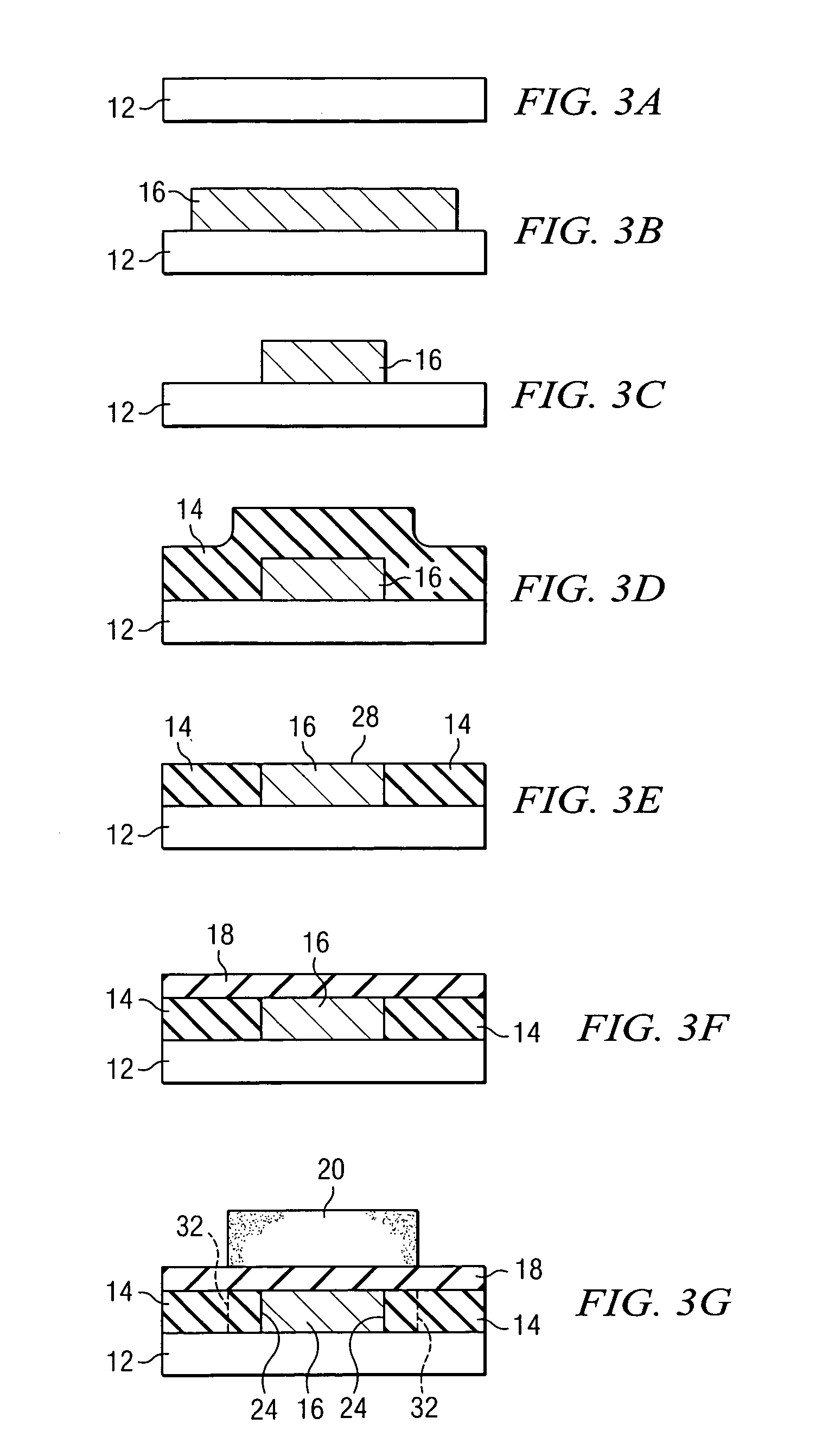Thin film magnetic head having improved thermal characteristics, and method of manufacturing
a thin film, magnetic head technology, applied in the direction of magnetic recording, data recording, instruments, etc., can solve the problems of adversely affecting the performance of a media drive, adverse consequences, and near linear changes in resistance, so as to improve the thermal contact noise, increase the bias current, and enhance the heat flow
- Summary
- Abstract
- Description
- Claims
- Application Information
AI Technical Summary
Benefits of technology
Problems solved by technology
Method used
Image
Examples
Embodiment Construction
[0021]Referring now to FIG. 1, a side view of a partial MR head is generally shown at 10. The MR element is not shown in this particular view, for better clarity in showing the details of the underlying conductive stud. Starting at the bottom and working up, thin-film head 10 comprises layer 100 that includes substrate 12, which is preferably composed of an AlTiC composite material. Above layer 100 is layer 110, which is preferably composed of an underlayer alumina portion 14, a thermally conductive stud 16, and an insulator alumina portion 18. Above layer 110 is layer 120, which comprises bottom shield 20, composed of a magnetically soft material such as CZT, FeN, NiFe, etc. Insulator alumina portion 18 insulates the thermally conductive stud 16 from bottom shield 20. However, other materials exhibiting similar insulating properties could also be used, such as SiC and aluminum nitride.
[0022]Referring now to FIG. 2, a top view of a partial thin-film head 10 is depicted. The underlyi...
PUM
| Property | Measurement | Unit |
|---|---|---|
| thermally conductive | aaaaa | aaaaa |
| electrical insulation | aaaaa | aaaaa |
| electrical insulator | aaaaa | aaaaa |
Abstract
Description
Claims
Application Information
 Login to View More
Login to View More - R&D
- Intellectual Property
- Life Sciences
- Materials
- Tech Scout
- Unparalleled Data Quality
- Higher Quality Content
- 60% Fewer Hallucinations
Browse by: Latest US Patents, China's latest patents, Technical Efficacy Thesaurus, Application Domain, Technology Topic, Popular Technical Reports.
© 2025 PatSnap. All rights reserved.Legal|Privacy policy|Modern Slavery Act Transparency Statement|Sitemap|About US| Contact US: help@patsnap.com



